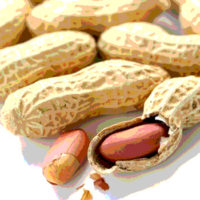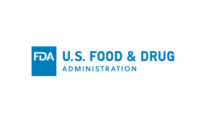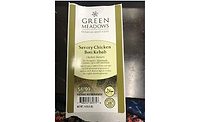Food Safety Magazine has monitored food recalls issued for the third consecutive quarter. Between July 1, 2015 and September 30, 2015, a total of 122 estimated recalls were announced by four major agencies--the U.S. Food and Drug Administration (FDA), U.S. Department of Agriculture (USDA), U.S. Centers for Disease Control and Prevention (CDC) and the Canadian Food Inspection Agency. This represents a decline of 25 percent compared to Q2.
Once again, the overwhelming majority of recalls issued were caused by undeclared allergens-- 53 percent this time around. For the second consecutive quarter, milk was by far the most common allergen, accounting for more than one-quarter of all allergen recalls.
Q3 Undeclared Allergens:
Milk: 18 (includes one dairy recall that is likely attributed to milk)[1]
Soy: 9
Wheat: 8
Eggs: 6
Sulphites: 6
Peanut: 4
Almonds: 4
Cashews: 2
Hazelnuts: 2
Anchovy: 1
Beef: 1
Mustard: 1
Nitrites: 1
Pistachio: 1
Yellow #5: 1
Good News for Peanut Allergens
In Q1, peanut allergens accounted for a hefty chunk of allergen-specific recalls--nearly one-third at the time. In Q2, that number plummeted to less than 4 percent and has remained the same for Q3. Why such a drastic dip? Food production facilities may finally feel more obligated to prevent such recalls from occurring, thus taking advantage of the many solutions available on the market. With a wide variety of test kits available for purchase and self-use, companies can save themselves a lot of time and possibly millions of dollars by taking some proactive steps. Besides more aggressive testing, another reason for the sizable dip in peanut allergen recalls may be a renewed interest in peanuts and food safety after two executives, two plant managers and one quality assurance manager--all former employees of Georgia’s now defunct Peanut Corporation of America (PCA)--were sentenced to jail time for their roles in knowingly shipping out batches of Salmonella-contaminated peanut butter. In September, former PCA owner Stewart Parnell was sentenced to 28 years in federal prison--by far the harshest punishment ever handed down in a food safety-related case. His brother, Michael Parnell, was sentenced to 20 years.[2] Former quality assurance manager Mary Wilkerson received a much lighter sentence of 5 years. The remaining co-defendants--Samuel Lightsey and Daniel Kilgore--are to serve 6 years and 3 years, respectively. Both will be subject to 3 years of supervised release upon their exit from federal prison.[3]
Salmonella - 26 percent of recalls
Recalls linked to Salmonella bacteria saw an uptick in Q3, likely due to a widespread recall of cucumbers that accounted for 21 percent of all Salmonella recalls. In early September, San Diego-based Andrew and Williamson Fresh Produce (A&W) voluntarily recalled their Limited Edition brand cucumbers sold between August 1, 2015 and September 3, 2015. The cucumbers--imported from Mexico--are believed to have caused three deaths. To date, another 600 individuals have fallen ill in 33 states.
Less than a month after issuing the recall, A&W--who said in a statement that they are “absolutely devastated”-- announced that they would be donating funds to STOP Foodborne Illness--a nonprofit organization dedicated to helping those impacted by foodborne illness.[4] The company has not specified how much they are donating to the organization, but the funds are expected to go towards developing an educational packet that will be distributed to every pediatric emergency room and hospital in the U.S. It will contain information to help patients with their foodborne illness ordeal, and to assist doctors with proper diagnosis.
Listeria monocytogenes - 13 percent of recalls
The percentage of Listeria monocytogenes recalls has seen little fluctuation this year. Most of the food products found with Listeria are cheeses and cheese-based products. In late September, the CDC issued a notice alerting the public of a multistate outbreak of Listeria linked to soft cheeses distributed by Karoun Dairies, Inc.[5] A total of 24 cases dating as far back as 2010--including 22 hospitalizations and at least one death--in nine states have been reported in connection to Karoun’s contaminated cheese. After issuing a voluntary recall on September 16, Karoun halted production of 15 varieties of soft cheeses sold under a number of brand names--Arz, Central Valley Creamery, Karoun, Queso Del Valle and Yanni. The CDC, along with state health officials and the FDA, continue to work together to investigate this multistate outbreak.
Escherichia coli (E. coli) - 2.5 percent of recalls
E. coli recalls have remained low on the totem pole. All three recalls last quarter attributed to E. coli occurred in beef products. Most notable in this category was a recall of 26,975 pounds (13.5 tons) of tenderized steak and ground beef products issued by Denver, CO-based Lombardi Brothers Meats due to possible E. coli contamination discovered during the company’s routine sampling program.[6] Oddly, the USDA announced the recall on July 3--right in the middle of the summer grilling season. The meat was reportedly distributed to hotels, restaurants and institutions in Colorado, New Mexico, Utah and Wyoming--it was not sold to the general public. At the time of the recall, no reports of related illness had been announced.
The Kraft Conundrum
In Q3 alone, the newly merged Kraft Heinz Company (as of July 2015) suffered three separate recalls for a variety of products--barbecue sauce (undeclared mustard), cheese (choking hazard) and the hugely popular Oscar Mayer brand turkey bacon (premature spoilage). In March, select lots of the Kraft’s iconic macaroni and cheese dinner were recalled due to suspected pieces of metal.[7] In August, Heinz recalled fruit and vegetable drink pouches along with baby food that both had the potential to spoil.
The silver lining in all this is at the sheer number of food recalls appears to be steadily declining. We look forward to sharing with you what the fourth quarter brings.
Editor’s Note: Food Safety Magazine reviewed 122 food recalls that were announced during the third quarter of 2015. We are aware that additional recalls may have been released during this time that we did not account for.
References
1. http://www.fda.gov/Safety/Recalls/ucm459849.htm?.
2. http://www.food-safety.com/news/28-years-in-prison-for-georgia-peanut-executive/.
3. http://www.food-safety.com/news/pca-plant-managers-sentenced-in-salmonella-outbreak-trial/.
4. http://www.food-safety.com/news/aw-donates-to-stop-foodborne-illness-after-massive-cucumber-recall/.
5. http://www.cdc.gov/listeria/outbreaks/soft-cheeses-09-15/index.html.
6. http://www.fsis.usda.gov/wps/portal/fsis/topics/recalls-and-public-health-alerts/recall-case-archive/archive/2015/recall-097-2015-release.
7. http://www.food-safety.com/enewsletter/undeclared-allergens-account-for-over-half-of-q1-food-recalls/?.




